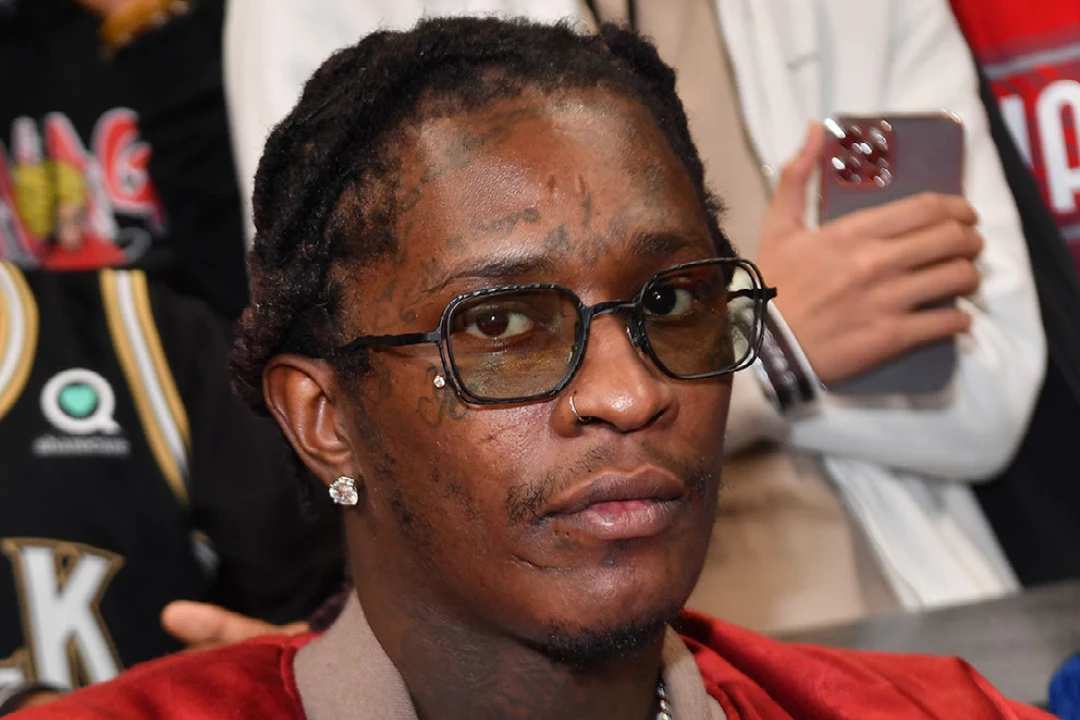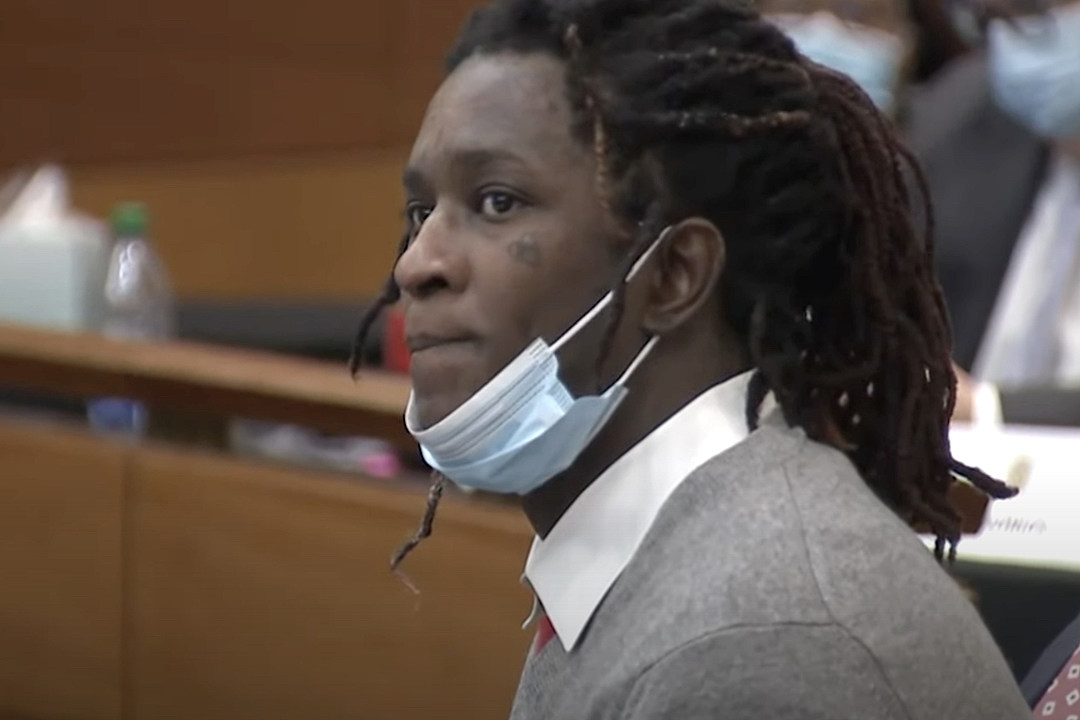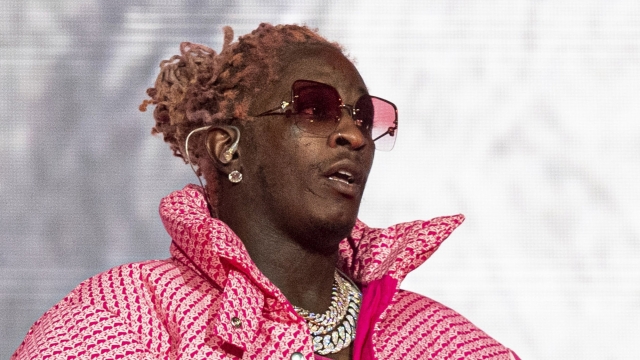The Complex Case of Young Thug: A Look at the Legal Proceedings and Cultural Impact
Related Articles: The Complex Case of Young Thug: A Look at the Legal Proceedings and Cultural Impact
Introduction
With enthusiasm, let’s navigate through the intriguing topic related to The Complex Case of Young Thug: A Look at the Legal Proceedings and Cultural Impact. Let’s weave interesting information and offer fresh perspectives to the readers.
Table of Content
The Complex Case of Young Thug: A Look at the Legal Proceedings and Cultural Impact

The ongoing legal case against Jeffery Lamar Williams, better known as Young Thug, has captivated the attention of the music industry and beyond. The charges against him, stemming from a sprawling RICO indictment alleging involvement in a criminal street gang, have raised complex questions about the intersection of music, culture, and the justice system. This article aims to provide a comprehensive overview of the case, its implications, and the wider context surrounding it.
The RICO Indictment and Its Allegations:
In May 2022, Williams and 27 other individuals were indicted in Fulton County, Georgia, on charges related to the alleged criminal street gang, "Young Slime Life" (YSL). The indictment, based on the Racketeer Influenced and Corrupt Organizations Act (RICO), alleges that YSL is a criminal enterprise engaged in various criminal activities, including murder, drug trafficking, and armed robbery. Williams is specifically accused of being a leader of the gang and participating in criminal activities, including the 2015 murder of Donovan Thomas Jr.
The indictment has been met with controversy, with many arguing that it criminalizes the music genre of "trap," which often references street life and gang culture. Critics point to the lack of clear evidence connecting Williams to specific criminal acts and the potential for prosecutorial overreach, arguing that the indictment conflates artistic expression with criminal activity.
The Legal Battles and the Ongoing Trial:
Williams and his co-defendants have maintained their innocence, arguing that YSL is simply a record label and that the indictment is a politically motivated attempt to silence them. The trial began in January 2023 and has been marked by intense legal maneuvering, witness testimonies, and public scrutiny.
One of the key arguments of the prosecution is that YSL is not merely a record label but a legitimate criminal enterprise with a hierarchical structure and a history of violent acts. They have presented evidence including gang-related tattoos, social media posts, and witness testimony to support their claims.
The defense, on the other hand, argues that the prosecution is conflating YSL’s music and branding with criminal activity. They have challenged the validity of witness testimonies and have emphasized the lack of direct evidence linking Williams to specific crimes.
The Cultural Impact and the Debate on Freedom of Expression:
The case has sparked a heated debate about the relationship between music and crime, particularly in the context of hip-hop and trap music. Some argue that the indictment is a dangerous precedent that could lead to the suppression of artistic expression, while others maintain that the law should hold individuals accountable for their actions regardless of their profession or artistic affiliations.
The case has also raised concerns about the potential for racial bias in the justice system. The majority of those indicted in the YSL case are Black, and critics have pointed to the disproportionate impact of RICO charges on communities of color.
The Future of the Case and its Implications:
The trial is ongoing, and the jury is expected to deliberate in the coming months. The outcome of the case will have significant implications for Williams, his co-defendants, and the wider music industry. It could set a precedent for how the law handles cases involving artists who depict or reference gang culture in their work.
Regardless of the verdict, the case has already had a profound impact on the cultural landscape. It has sparked a conversation about the intersection of music, crime, and justice, and it has highlighted the complexities of navigating the line between artistic expression and criminal behavior.
FAQs on the Young Thug Case:
- What are the main charges against Young Thug?
Young Thug is facing charges related to racketeering, gang activity, and murder. The indictment alleges that he is a leader of the "Young Slime Life" (YSL) gang and participated in various criminal activities.
- What is the RICO Act?
The Racketeer Influenced and Corrupt Organizations Act (RICO) is a federal law designed to combat organized crime. It allows prosecutors to charge individuals with racketeering offenses based on their alleged participation in a criminal enterprise.
- What is the defense’s argument?
The defense argues that YSL is simply a record label and that the indictment is a politically motivated attempt to silence them. They maintain that Williams is innocent and that the prosecution is conflating artistic expression with criminal activity.
- What is the cultural impact of the case?
The case has sparked a debate about the relationship between music and crime, particularly in the context of hip-hop and trap music. It has also raised concerns about the potential for racial bias in the justice system.
Tips for Understanding the Young Thug Case:
- Stay informed: Follow reputable news sources and legal analyses to stay updated on the trial and its developments.
- Consider multiple perspectives: Engage with different viewpoints and arguments to gain a nuanced understanding of the case.
- Distinguish between art and reality: Be mindful of the distinction between artistic expression and real-life criminal activity.
- Advocate for justice: Support organizations and initiatives that promote fair treatment and equal justice for all.
Conclusion:
The Young Thug case is a complex legal battle with far-reaching cultural implications. It raises important questions about the intersection of music, crime, and justice, and it highlights the challenges of navigating the line between artistic expression and criminal behavior. The outcome of the case will have significant implications for Williams, his co-defendants, and the wider music industry, and it will likely continue to be a topic of debate and discussion for years to come.






Closure
Thus, we hope this article has provided valuable insights into The Complex Case of Young Thug: A Look at the Legal Proceedings and Cultural Impact. We thank you for taking the time to read this article. See you in our next article!
